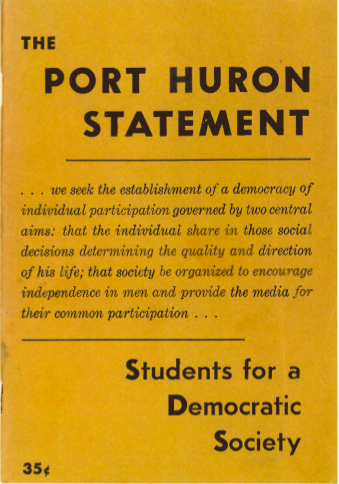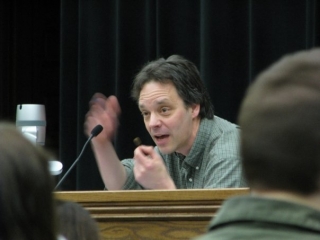Cross-posted from ZNet, where it was published on May 1, 2009.
A shortened version of this speech was given at a public forum sponsored by AWARE, the local Anti War Anti Racism Effort in Urbana, Illinois on the evening of April 30, 2009 at the Urbana City Council Chambers.
Thank you for inviting me to speak on the new administration’s first hundred days of centrist rule. Along with a number of other left writers and speakers over the last two years including Glen Ford, Bruce Dixon, Margaret Kimberly, Pam Martens, Michael Hudson, John Pilger, Chris Hedges,
John R. MacArthur,
Ken Silverstein,
Juan Santos,
Matt Gonzales,
Alexander Cockburn,
Ralph Nader,
Anthony Arnove,
Lance Selfa,
Joshua Frank, and
Noam Chomsky, I have been living proof that the FOX News crowd is wrong when it says that all of “the left” is deeply and hopelessly in love with His Holiness the Dali Obama. It is true, I think, that much of what passes for a left in the U.S. has been unduly captive to the Obama phenomenon but many of us on the actual, so-called “hard left” have never fallen for the myth of Obama as some sort of progressive Mr. Smith-Goes-to-Washington character who is willing and ready to take on the corporate and military power elite. We’ve tended to see him rather as what MacArthur, the president of
Harper’s Magazine,
calls “a moderate with far too much respect for the global financial class.”
Before I get into specifics I want to make six quick caveats or qualifications that might provide some useful context for my remarks. The first caveat as is that for all my harsh judgments, I have never doubted that what Barack Obama has been doing is highly intelligent from the perspective of seeking glory and advancement within the narrow institutional and ideological framework of the dominant U.S. political system and culture. Obama and his team are masterful political actors and most of what I disapprove of in their behavior is heavily incentivized by that system and culture.
Second, my critique of the Obama administration is informed by a deeper and broader critique of the Democratic Party and its longstanding role of defining and policing the constricted leftmost parameters of acceptable political debate in the U.S. For the last century it has been the Democratic Party’s distinctive assignment to play what the Marxist author Lance Selfa calls “the role of shock absorber, trying to head off and co-opt restive [and potentially radical] segments of the electorate” by posing as “the party of the people.” If you buy my book Barack Obama and the Future of American Politics , you’ll see that I find Obama’s political career richly consistent with Selfa’s analysis and with the presidencies of John Kennedy, Lyndon Johnson, Jimmy Carter, and Bill Clinton.
, you’ll see that I find Obama’s political career richly consistent with Selfa’s analysis and with the presidencies of John Kennedy, Lyndon Johnson, Jimmy Carter, and Bill Clinton.
(more…)



